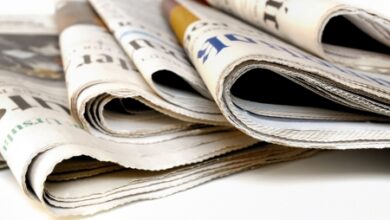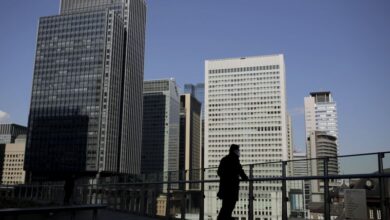Australia’s COVID agitators inject misinformation into Indigenous Voice vote By Reuters

[ad_1]

© Reuters.
By Byron Kaye
BRISBANE, Australia (Reuters) -At a beachfront park in Brisbane’s north, suspended Australian physician William Bay advised a gathering that an upcoming referendum to recognise the nation’s first inhabitants and enshrine an Indigenous advisory physique within the structure would “open a gateway to endless tyranny and lawlessness”.
The proposal was “equal to Germany’s Enabling Act of 1933, which turned Hitler into the Fuhrer”, Bay stated within the speech in August, which he posted on Fb (NASDAQ:) for his 14,000 followers. The advisory physique might “management the parliament and the federal government, thus changing our system of consultant democracy”, added Bay, who misplaced his medical licence in 2022 after protesting towards COVID-19 vaccines.
Dozens of campaigners who constructed substantial audiences throughout the COVID period by opposing Australia’s pandemic response have turned their focus to undermining the Oct. 14 referendum, evaluation of social media posts by impartial fact-checkers exhibits.
A lot of their claims bear little resemblance to the proposal Australians will vote on: to ascertain a physique referred to as the Voice to Parliament to offer non-binding recommendation to lawmakers on issues regarding Indigenous Australians.
These influencers are taking part in an outsized position within the debate, spreading falsehoods that threaten to place the landmark vote prone to failing, eight political analysts and anti-misinformation specialists advised Reuters. The direct hyperlink between COVID agitators and misinformation concerning the Voice has not been beforehand reported intimately.
Polls present help for the Voice has slumped from about two-thirds in April to lower than 40% this month. Whereas elements cited by political commentators embrace lack of bipartisan help, uncertainty concerning the Voice’s scope and a lackluster “Sure” marketing campaign, the specialists who spoke to Reuters stated a few of the decline could be attributed to misinformation.
Fb proprietor Meta elevated funding for third-party fact-checkers in July, however a month later 40% of posts from accounts flagged for sharing “misinformation or poisonous narratives associated to the referendum” went viral, in accordance with beforehand unpublished analysis by Reset.Tech Australia reported by Reuters for the primary time. The web advocacy group defines “viral” as receiving greater than 100 engagements inside 24 hours.
Simply 4% of posts on Fb containing independently assessed misinformation concerning the electoral course of had been marked or taken down after three weeks, stated Reset.Tech, which monitored 99 deceptive posts with a mixed attain of 486,000 folks throughout Fb, X (previously often known as Twitter) and TikTok.
Not one X put up containing electoral misinformation was marked or taken down within the monitoring interval, earlier than or after being reported, Reset.Tech stated.
X, which laid off many workers after billionaire Elon Musk purchased the platform in 2022, didn’t reply to a request for remark. The corporate’s civic integrity coverage says using its companies to govern or mislead folks about elections is a violation of its consumer settlement.
TikTok labelled or eliminated one-third of deceptive posts, Reset.Tech stated, probably the most proactive within the examine.
“Most of the accounts pushing electoral misinformation narratives turned to a mode of anti-lockdown politics throughout the pandemic,” stated Reset.Tech Australia government director Alice Dawkins. “A few of these accounts have since attained new ranges of virality within the lead as much as the referendum, notably on X.”
A Meta spokesperson stated the corporate wished wholesome debate on its platforms however it was “difficult to all the time strike the suitable steadiness” when some customers “wish to abuse our companies throughout election intervals and referendums”.
TikTok’s Australian public coverage director Ella Woods-Joyce stated the corporate was targeted on defending “the integrity of the method and our platform whereas sustaining a impartial place”.
In relation to the referendum, Australia’s Electoral Fee has seen “extra false commentary about electoral processes unfold within the info ecosystem than we have noticed for earlier electoral occasions”, its media and digital director Evan Ekin-Smyth advised Reuters.
Below a large fig tree, Bay urged his principally middle-aged viewers – and Fb following – to “scrutineer” polling cubicles to “be certain that it’s counted right”, in remarks paying homage to unsubstantiated vote-rigging claims by former U.S. president Donald Trump over his 2020 loss.
Talking to Reuters, Bay denied spreading misinformation, saying he thought-about his claims correct. He acknowledged his statements “could carry some weight” given his public profile associated to the pandemic.
On the similar occasion, native member of parliament Luke Howarth spoke towards the Voice, sticking to the conservative opposition’s argument that the proposal can be ineffective and divisive as a result of it might prolong further rights to some folks based mostly on race.
‘POLLUTE YOUR OPINION’
Australia’s powerful pandemic lockdown and vaccine measures triggered quite a few protests, usually impressed by social media influencers and anti-vaccine campaigners.
“Covid appeared to awaken in folks an entire mistrust of authority and insecurity within the state,” stated David Heilpern, dean of the Southern Cross College legislation college, who research anti-government actions. “It actually will impact the vote.”
Bay is way from alone within the anti-Voice on-line ecosystem that has emerged from the pandemic.
A Qantas pilot who give up over the airline’s COVID vaccine mandate, Graham Hood, now hosts a webcast that he shares with 142,000 Fb followers.
His visitor on July 10, far-right senator Pauline Hanson, advised viewers the Voice would flip Australia’s Northern Territory right into a breakaway “Aboriginal black state” and add further seats in parliament “which they will make purely for Aboriginal, Indigenous folks”.
Tristan Van Rye, an electrician with 22,000 Fb followers after protesting towards COVID vaccines, wrote in a July 10 put up that the Indigenous physique would “take management of sure seashores, nature reserves, nationwide forests and both completely prohibit entry to all Australians, or cost them charges to entry the land”. Hood, Hanson and Van Rye didn’t reply to Reuters’ questions concerning the unfold of misinformation.
The Voice was proposed by Aboriginal leaders in 2017 as a step towards therapeutic a nationwide wound relationship again to colonisation. Not like Canada, the U.S. and New Zealand, Australia has no treaty with its Indigenous folks, who make up about 3.2% of its inhabitants and lag nationwide averages on socioeconomic measures.
Ed Coper, director of communications company Populares, stated that for voters dealing with a brand new difficulty just like the Voice, “it’s a lot simpler to see misinformation on social media and have that pollute your opinion when you’re (nonetheless) forming that opinion”.
One X account labelled by misinformation researchers as presumably pretend resulting from its excessive quantity of anti-Voice content material was finally linked to an actual individual, a retired cleaning-business proprietor from Melbourne.
“I’ve solely obtained political inside the final two years,” the account operator, Rosita Diaz, 75, advised Reuters by telephone. “99.9% of what I put up is 100% right. I’d say 100% however some folks would flip round and name me a liar. Generally I would get one thing improper.”
Diaz stated she had been suspended by Fb “seven or eight” instances over posts deemed false. She now principally posts on X, the place she has 20,600 followers and pays for a subscription, that means her posts seem extra continuously on customers’ feeds.
MISINFORMATION BILL
Australia’s left-leaning Labor authorities, which helps the Voice, launched draft laws this yr that may permit the media regulator to find out what constitutes misinformation and advantageous social media corporations that fail to curb it.
The invoice, which remains to be in public session, has been criticised by Voice opponents as authorities censorship. However it might not develop into legislation till after the referendum.
A spokesperson for Communications Minister Michelle Rowland stated the federal government desires the invoice handed this yr however social media platforms are anticipated to adjust to a voluntary code of conduct with regards to the Voice.
The Sure marketing campaign, in the meantime, has accused the No camp of intentionally spreading misinformation as a part of its technique. A spokesperson for Advance Australia, which is coordinating the No marketing campaign, advised Reuters there have been “tens of hundreds of (No marketing campaign) hats and t-shirts on the market and we’re not accountable for what folks say whereas they’re sporting them”.
Elise Thomas, an analyst with the Institute for Strategic Dialogue, stated a scarcity of evidence-based analysis meant Australians could by no means achieve a full image of how disinformation and misinformation affect the referendum consequence.
“That is a disgrace, each for us right here within the current and for future generations of Australians making an attempt to grasp this second in historical past,” she stated.
[ad_2]
Source link




